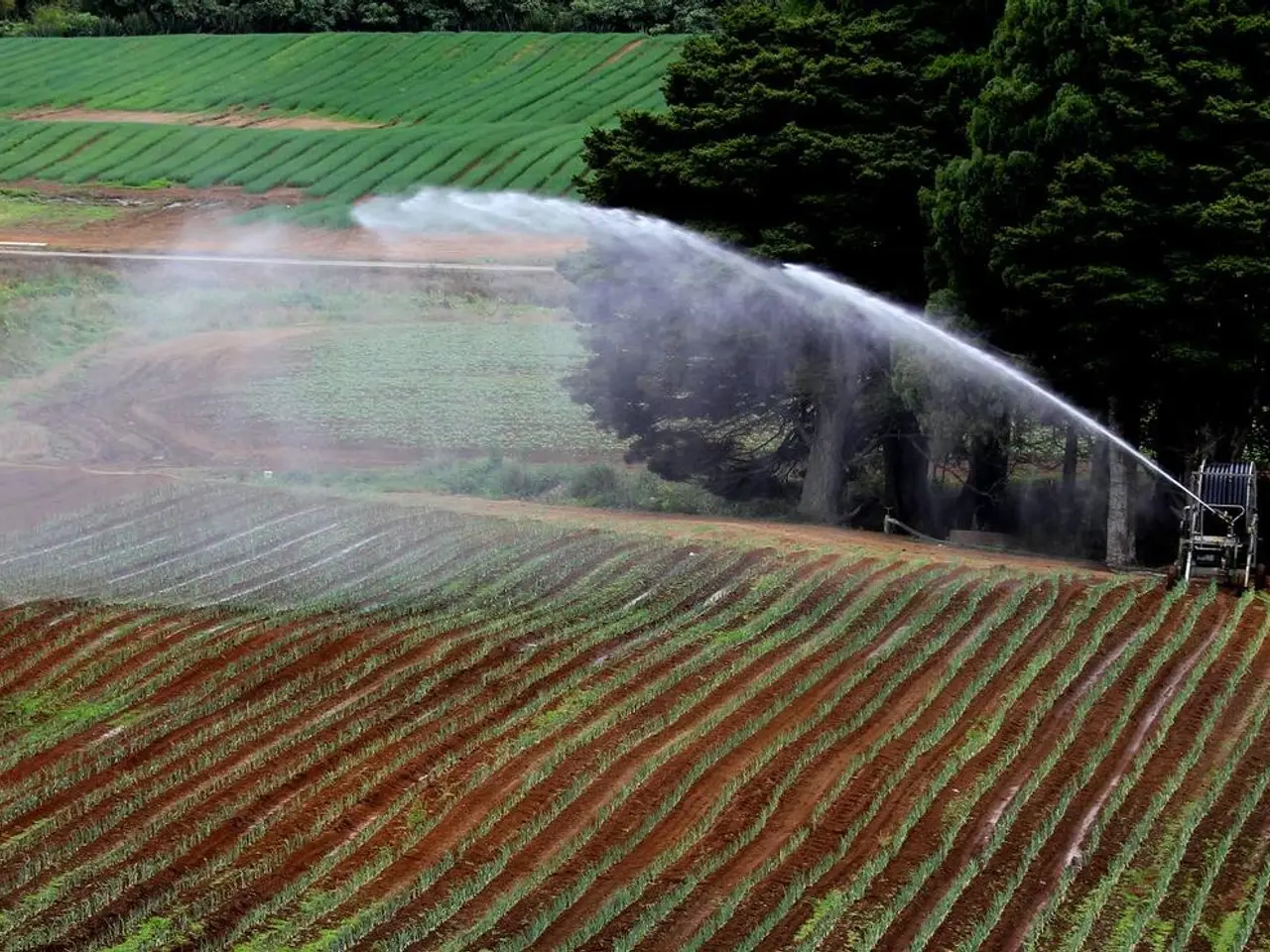Errors to Steer Clear of When Acquiring Farmland
=========================================================================================================
When venturing into the world of agricultural land purchasing around Chennai, Tamil Nadu, it's essential to be well-informed to avoid costly mistakes. Here are some common pitfalls to steer clear of:
- Ignoring due diligence:
- Investigating the land's legitimacy: Verify the Patta, zoning restrictions, soil quality, water rights, and environmental factors to ensure the land is suitable for your intended use.
- Checking for encumbrances and legal disputes: Obtain an Encumbrance Certificate (EC) for at least 30 years to ensure the land is free from mortgages, liens, or litigations.
- Not obtaining or verifying a valid Patta document:
- The Patta is the primary government-recognized proof of legal ownership in Tamil Nadu. Relying solely on a sale deed without a Patta can lead to ownership disputes.
- Ignoring land classification (Ryotwari vs. Inam land):
- Inam lands often come with restrictions and require clearance from government bodies before sale or development. Ensure the land is classified as Ryotwari or properly converted from Inam.
- Buying B-Memo land without proper verification:
- B-Memo land has possession proof but may lack legal ownership rights. Always insist on clear title documents and Patta.
- Failing to check for encumbrances and legal disputes:
- Obtain an Encumbrance Certificate (EC) for at least 30 years to ensure the land is free from mortgages, liens, or litigations.
- Not verifying developer credentials if buying through builders:
- Verify title ownership, layout approvals, environmental clearances, and RERA registration to avoid scams.
- Using brokers without proper verification:
- Always deal with licensed or verified agents to prevent fraud.
- Submitting incomplete documents for Patta application or mutation:
- This can delay ownership registration and legal recognition.
- Ignoring subdivision norms and planning approvals if buying subdivided land:
- This may invalidate the Patta or sale.
To effectively research and navigate the process:
- Perform a detailed title verification:
- Check the Patta for the land, its type (Ryotwari/Inam), and dates of issue.
- Obtain the Encumbrance Certificate for 30 years.
- Confirm land records and ownership status via the Taluk Office or Village Administrative Officer (VAO).
- Verify legal and regulatory approvals:
- Confirm layout approvals, zoning clearances from local authorities.
- For developers, check environmental clearances and RERA registration status.
- Physically inspect the land:
- Confirm physical boundaries.
- Look for encroachments or disputes.
- Confirm agricultural classification, water availability, and soil suitability.
- Consult legal and agricultural experts:
- Get official document verification by property lawyers.
- Consider agricultural consultants for the land’s suitability and restrictions.
- Use government online portals and tools:
- Tamil Nadu's Patta Chitta online extracts can quickly verify ownership status.
- Use platforms like Verified.RealEstate to detect issues like B-Memo land.
- Ensure documentation completeness:
- Have the sale deed, Patta, Encumbrance Certificate, approved layout plan (if any), and property tax receipts ready.
- Avoid common pitfalls:
- Don’t purchase based only on possession or verbal agreements.
- Avoid rush deals or buying from unverified brokers.
- Request a No Objection Certificate (NOC) where applicable.
By carefully verifying ownership documents, legal status, and regulatory compliance—while seeking professional assistance—you can minimize risks and navigate the agricultural land purchase process around Chennai effectively.
Other factors to consider include:
- Proximity to major roads and highways will impact the ease of transporting your produce to markets or processing facilities.
- Research the market demand for chosen produce in Chennai, considering the competition and potential niche opportunities.
- Research similar land parcels that have recently sold in the area to understand the fair market value.
- Explore water-saving irrigation techniques like drip irrigation to adapt to Chennai's potential water scarcity.
- Prioritize building and maintaining healthy soil through organic matter management and crop rotation.
- Plan for responsible management of agricultural waste to minimize environmental impact.
- Visit the property multiple times, under different weather conditions if possible. Talk to neighboring farmers and understand the local agricultural landscape.
- The fourth mistake is going solo in the process, and seeking help from professionals like real estate agents, agricultural consultants, and lawyers is recommended.
- The fifth mistake is underestimating hidden costs, such as property taxes, maintenance, and infrastructure upgrades.
- Maintenance Costs: Regular maintenance of fences, irrigation systems, and any existing structures is an ongoing expense.
- The third mistake is not having a clear vision for the agricultural venture, as understanding goals will guide the land search and help determine the best crops, water needs, and market demand.
- Different crops have varying water requirements, and potential water scarcity should be considered.
- Proximity to transportation networks, markets, and processing facilities significantly impacts the value and ease of operation of agricultural land.
- In Chennai's tropical climate, a variety of crops like paddy, pulses, vegetables, and fruits can be grown.
- Ensure the land has proper internal roads or pathways for navigating the property efficiently, especially for larger plots.
- Consider how accessible your land will be in the long run, especially with Chennai's potential for traffic congestion.
Read also:
- Discusses Rasmus Sojmark's thoughts on the Legends Charity Game before SBC Summit
- Stone mining has transformed the once renowned 'Sada Pathor' into a desolate, post-apocalyptic landscape.
- The Developmental Journey of Digital Supply Chains
- In the Heart of Soho, Manhattan, a New Brewery Emerges Underground








